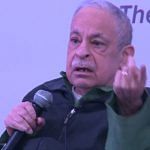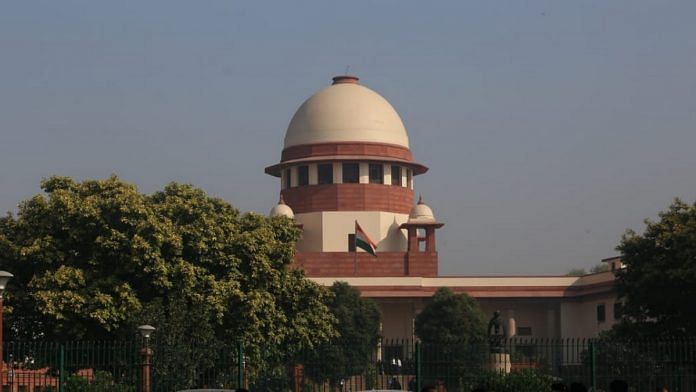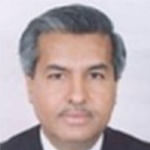 The message from Delhi
The message from Delhi
Satish Deshpande | Teaches Sociology at Delhi University
The Hindu
Deshpande argues that the violence in the national capital cannot be classified as a riot or even ‘communal violence’ and ‘pogrom’. He states that there is no single phrase “that can name this phenomenon, because it is really the newest stage of an ongoing project rather than a stand-alone event”.
“The Delhi violence and its aftermath point to the truth that, today, a large mass of people have been injected with hate and inoculated against all antidotes. Such people are convinced that they already have all the facts they need. They are programmed to regard arguments against their worldview as proof of a conspiracy against it,” writes Deshpande.
Justice not done
Dushyant Dave | President, the Supreme Court Bar Association of India
The Indian Express
Dave argues that the judiciary has failed to play its part in stopping the violence taking place in Delhi and “proceedings have left a bitter taste in the minds of law-abiding citizens”. The Delhi HC adjourned the hearings related to hate speeches to 13 April, which Dave describes as “deeply disturbing”. On Justice Mulidhar’s transfer and handling of the case by Delhi HC chief justice following it, he argues that “one cannot help feeling that the court has let the citizens down.”
 Delhi riots: Six lessons for the State and police
Delhi riots: Six lessons for the State and police
Yashovardhan Azad | Former IPS officer and Central Information Commissioner
Hindustan Times
Azad comments on the Delhi Police’s failure to take adequate action during the riots in Northeast Delhi last week. He argues that “any sign of communal violence has to be nipped in the bud” and the police should have moved “very strongly and decisively when the clash between the groups had just begun.” He argues that the Delhi police failed to provide strong leadership, which is critical to curtailing such violence.
 Pieces of Peace
Pieces of Peace
Anju Gupta | The writer is an IPS officer.
The Indian Express
Gupta describes the US-Taliban peace deal as “just another piece in the overall strategy of the US for Afghanistan”. She argues that the US is following the “troop surge” strategy, which led to complete withdrawal of American troops from Iraq in 2011. She argues that at the heat of the US’ counter-insurgency operation was increasing the numbers and capability of the ANSF, the Afghan troops, to take on insurgents. Gupta states that “by and large the ANSF have been successful in maintaining the balance and the Taliban-control has not slipped to 2009 levels” allowing the US to withdraw forces.
 The US cuts a deal with Taliban. But where is the agreement for bringing peace?
The US cuts a deal with Taliban. But where is the agreement for bringing peace?
Dilip Sinha | Former diplomat
The Times of India
Sinha raises questions on the peace deal signed between the US and Taliban and states that it is an “odd deal between a superpower fighting a worldwide war against terrorism and a terrorist organisation.”
Sinha argues, “A peace agreement starts with a ceasefire and is based on a commitment by both sides to respect it while further talks take place. Taliban, who have stubbornly refused to talk to the Afghan government, have made no such commitment in the agreement”. They have only agreed to hold intra-Afghan negotiations “with Afghan sides on March 10, 2020” and a ceasefire will be “an item on the agenda” of the talks.
 Pushing the wrong energy buttons
Pushing the wrong energy buttons
M.V. Ramana | Physicist, Coalition for Nuclear Disarmament and Peace
Suvrat Raju | Physicist, Coalition for Nuclear Disarmament and Peace
The Hindu
Ramana and Raju argue that PM Modi’s promise to purchase US nuclear reactors should have been abandoned instead of finalised because of serious concerns about cost and safety. “Starting with the Tarapur 1 and 2 reactors, in Maharashtra, India’s experiences with imported reactors have been poor. The Kudankulam 1 and 2 reactors, in Tamil Nadu, the only ones to have been imported and commissioned in the last decade, have been repeatedly shut down,” they note. Thus, they write, the idea of importing nuclear reactors is a “zombie idea” that should have been “dead long ago”.
 A telecom crisis once again
A telecom crisis once again
Rahul Khullar | Former chairman, Trai
Business Standard
After assessing the “magnitude” of the telecom crisis, Khullar warns that the sector could implode, especially given the “economy-wide ramifications” at this moment. He provides a few suggestions to avoid this – the Centre should waive interest and penalties on license fee dues that companies owe TRAI, convert all dues into an “interest-free loan”, make companies accept TRAI’s definition of AGR or “declare a licence fee/spectrum usage charge holiday for five years”.
 Opportunities and challenges arising from a force majeure
Opportunities and challenges arising from a force majeure
Narayan Ramachandran | Chairman, InKlude Labs
Mint
Ramachandran discusses “force majeure” — a provision in contracts that “frees both parties from obligations if an extraordinary event” occurs. He refers in particular to China National Offshore Oil Corp’s invocation of the provision to decline Liquified Natural Gas (LNG) cargo, citing the “disruption” caused by the coronavirus outbreak. Ramachandran also expands on how the epidemic is an opportunity for ‘Make in India’ to showcase its strengths in all sectors from automobile to textile, considering the restriction on trade in China.
Have NPAs dipped?
S. Kalyanasundaram | Retired banker
The Hindu Business Line
Kalyanasundaram examines Finance Minister Nirmala Sitharaman’s claim that “public sector banks’ bad loans came down to ₹7.27 lakh crore at the end of September 2019” due to government measures. He concludes that her statement “seems way too optimistic” as the actual recovery was less than the right off amount. In March 2019, RBI had reported that the NPA figure was Rs 7.39 lakh crore, and thus, even Rs 7.27 lakh crore is not a significant reduction.
Today’s Editorials
The Times of India: Two fresh cases of coronavirus prove that the government has much work to do other than screening airports and seaports, TOI writes. Information dissemination and creating awareness is the need of the hour. Also, the best way to deal with coronavirus’s disruptive economic impact is to concentrate efforts on containing it and boosting public health, rather than spending on other stimulus measures
Hindustan Times: In reference to the Sunday rumors regarding violence in West Delhi, HT writes that the city is still on the edge and remains fragile. Delhi police under S.N. Shrivastava has started off well but he must ensure rigorous and independent probe into the riots, ensure peace and rebuild trust between the police and the citizens.
The Hindu: The Aam Aadmi Party’s justification on clearing sanction on Kanhaiya Kumar’s sedition case by saying that it has a policy of non-interference in judicial matters is completely unacceptable. The government is required to decide whether there is enough material to conclude that the speech or slogans had a tendency to create public disorder, it says. Hindu also predicts that the political narrative behind the sanction may be that Kejriwal and his party might not want to concede ‘nationalistic space’ entirely to the BJP.







